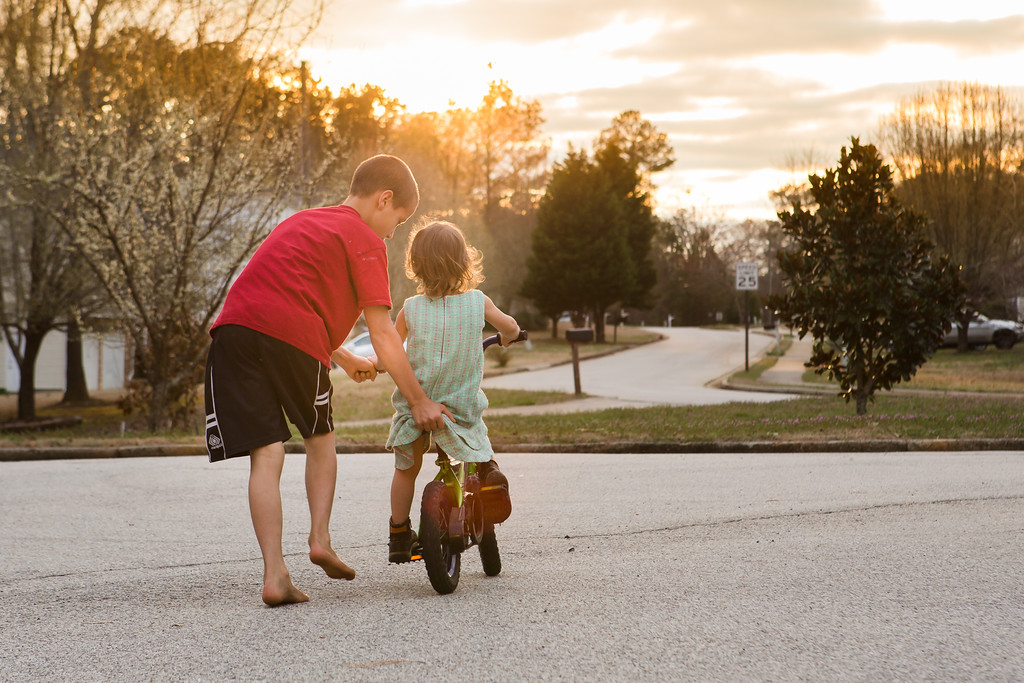Connecting With “Becoming A Child” by George David Clark
by Jireh Hodges · January 31, 2023
As a college student a semester away from graduation, the reality of my adult life is looming ever closer. It’s hard to face the fact that after graduating and getting a job, there will be no more summers off between semesters, no more living off my parents’ dime, and no more time to focus solely on my own interests. Soon, I will be on my own to face the daily drudge of adult life. I often find myself wishing I could return to the moments where I had much fewer responsibilities and more free time, and spent my days soaking up sunshine instead of buried in textbooks.
This idea is aptly captured and beautifully described in George David Clark’s “Becoming A Child,” published in Five Points Vol. 21, No. 3. In the poem, we follow the speaker as he acts out his childhood’s daily routine—packing crustless peanut butter jelly sandwiches for lunch, putting on a higher voice, and biking endlessly around his cul-de-sac in order to reembody a childhood that has slipped away. The idea of “circum-bik[ing] the blacktop cul-de-sac no handed” to recapture the feeling of being a child again is very relatable, and reminiscent of my own childhood.
The epigraph of the speaker’s quest to once again “become a child” is Matthew 8:13: “Truly I tell you, unless you change and become like children, you will never enter the kingdom of heaven.” Clearly our speaker is taking a literalistic interpretation of a verse that seems like it is better understood as a moral truth. But by taking this literalistic view and turning this metaphor into concrete images, Clark shows us the dangers of living in the past. Picturing a grown man literally regressing to his child self is incredibly visually powerful, and reminds us that trying to return to that time is a lost cause.
In the end, our speaker decides that his quest is in vain: “It hasn’t worked. Too hard/to gauge old feelings to a childish/pitch, to choose a stage of being/that’s so antithetical to choice.” This is a truth I have realized myself. At some point, we all have to move on and grow up. A couple lines that really stood out to me were “to choose a stage of being/that’s so antithetical to choice,” because it so accurately describes that what we lack in childhood is the autonomy and responsibility to make our own choices.
The final lines of the poem, “I need a novel way/of waning—wilder, more intense,/and yet still willing to be heeled—/if I’d grow younger by an inch” reminded me of a line from J.M. Barrie’s Peter Pan: “All children […] soon know that they will grow up, and the way Wendy knew was this. One day when she was two years old she was playing in a garden, and she plucked another flower and ran with it to her mother. I suppose she must have looked rather delightful, for Mrs. Darling put her hand to her heart and cried, ‘Oh, why can’t you remain like this for ever!’”
This passage captures a universal human experience. But the fact is, no one really wants to remain a child forever. Part of what makes childhood precious is that it comes to an end. We may look back on those years fondly, but at some point, we must admit that the past should stay in the past. At first glance, literally “becoming a child” may sound tempting, as it evokes a time when we had so little to worry about. But in reality, Clark shows us that the result of trying to “become a child” is far from the “kingdom of heaven” that Jesus references in Matthew 8:13. Instead, it is a grown man awkwardly looping his cul-de-sac, trying desperately to revive an era whose time has long passed.
Jireh Hodges is a senior at Georgia State University working toward a bachelor’s degree in English with a concentration in Rhetoric & Composition. She hopes to pursue a job in copyediting after graduating in May 2023.
